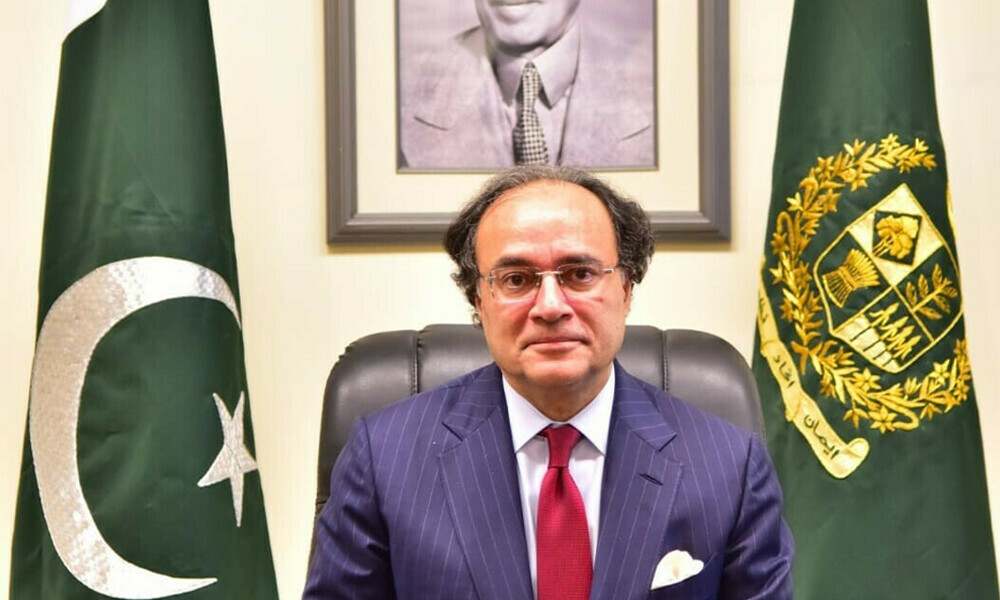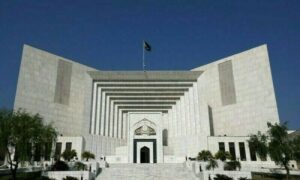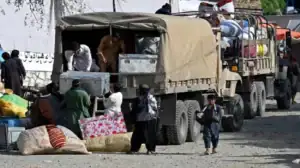Islamabad, Nov 18: PM to Launch Indigenous Economic Roadmap, Announces Aurangzeb. According to Finance Minister Muhammad Aurangzeb, Prime Minister Shehbaz Sharif will shortly unveil a domestic economic blueprint for the nation’s future, stating that it has been thoroughly discussed with all relevant parties.
Speaking on Pakistan Television, the minister stated that the government was dedicated to enhancing the hard-won macroeconomic stability that had decreased the inflation rate from 38 percent to just 7 percent, the policy rate from 22 percent to 15 percent, and foreign exchange reserves from only two weeks of import coverage to two and a half months of cover. He also added, “We are now taking it to three months of import cover with conjunction of station bank.”
The minister advocated for a national environmental charter in order to address the difficulties posed by the climate emergency. Population growth, child stunting, and climate change have become major issues in Pakistan, and Aurangzeb stated that all facets of society, including political parties, the media, and others, should contribute, begin discussing, and advance the environmental charter in addition to the economic charter.
During the recent IMF and World Bank meetings in Washington, the finance minister stated that the international community has praised Pakistan’s economic recovery in just 14 months. He said, “We have also received an equally important message; stay the course; there is no room for complacency.”
According to the finance minister, Prime Minister Shehbaz Sharif will soon present a domestic economic plan that is highly coordinated with all parties involved. He claimed that the recent International Monetary Fund (IMF) staff mission visit to Pakistan ended well and contributed to increased trust.
According to him, Pakistan brought up the mission’s request for more funding for climate resilience.He said that during an impromptu staff visit last week, Pakistan discussed its $7 billion bailout reform plan with the IMF. “We talked about tax reform, energy reform, privatization of state-owned enterprises (SOEs) that are losing money, and public finance reform,” Aurangzeb stated.
Clear, transparent quarterly quantitative and structural benchmarks that were accessible on the IMF and Ministry of Finance websites were discussed. Tax, energy, state-owned enterprise, privatization, and public finance reforms were among them. “The IMF was updated on the public finance that required rightsizing of the entire federal government and how this process would be carried out,” he said, adding that the quantitative and structural benchmarks that were due by the end of September had been satisfied.
The minister promised to ensure compliance and enforcement, stating that all economic sectors, including wholesale, real estate, and agricultural, would be required to pay their fair amount of taxes to the economy. He reaffirmed that tax contributions from all sectors were inevitable and that the manufacturing and salaried sectors could no longer be further burdened. “Everyone must fulfill their role,” he stated.
According to the finance minister, Pakistan’s major problems are the climate emergency, population growth, and child stunting. All facets of society, including political parties, the media, and others, should contribute to these issues, start a conversation, and advance the environmental and economic charter.
He said that 40 percent of Pakistani youngsters had stunted growth and that the country could not continue to thrive given the rate of population expansion and environmental disaster. “We are facing a population and climate emergency,” he stated, adding that issues including flooding, pollution, and decarbonization should be discussed by the media, political parties, and others.
The finance minister praised the four chief ministers for their cooperation on public finance, including provincial taxes and other duties, stating that it was a government-wide approach rather than the federal government doing one thing or the provinces operating in a particular way.
The IMF concluded the visit by expressing encouragement over Islamabad’s renewed commitment to the economic reforms under the Extended Fund Facility, which its board had agreed in September to lower vulnerabilities. Both parties concurred, according to the IMF, on the necessity of maintaining sound fiscal and monetary policies as well as raising money from untapped tax bases.









